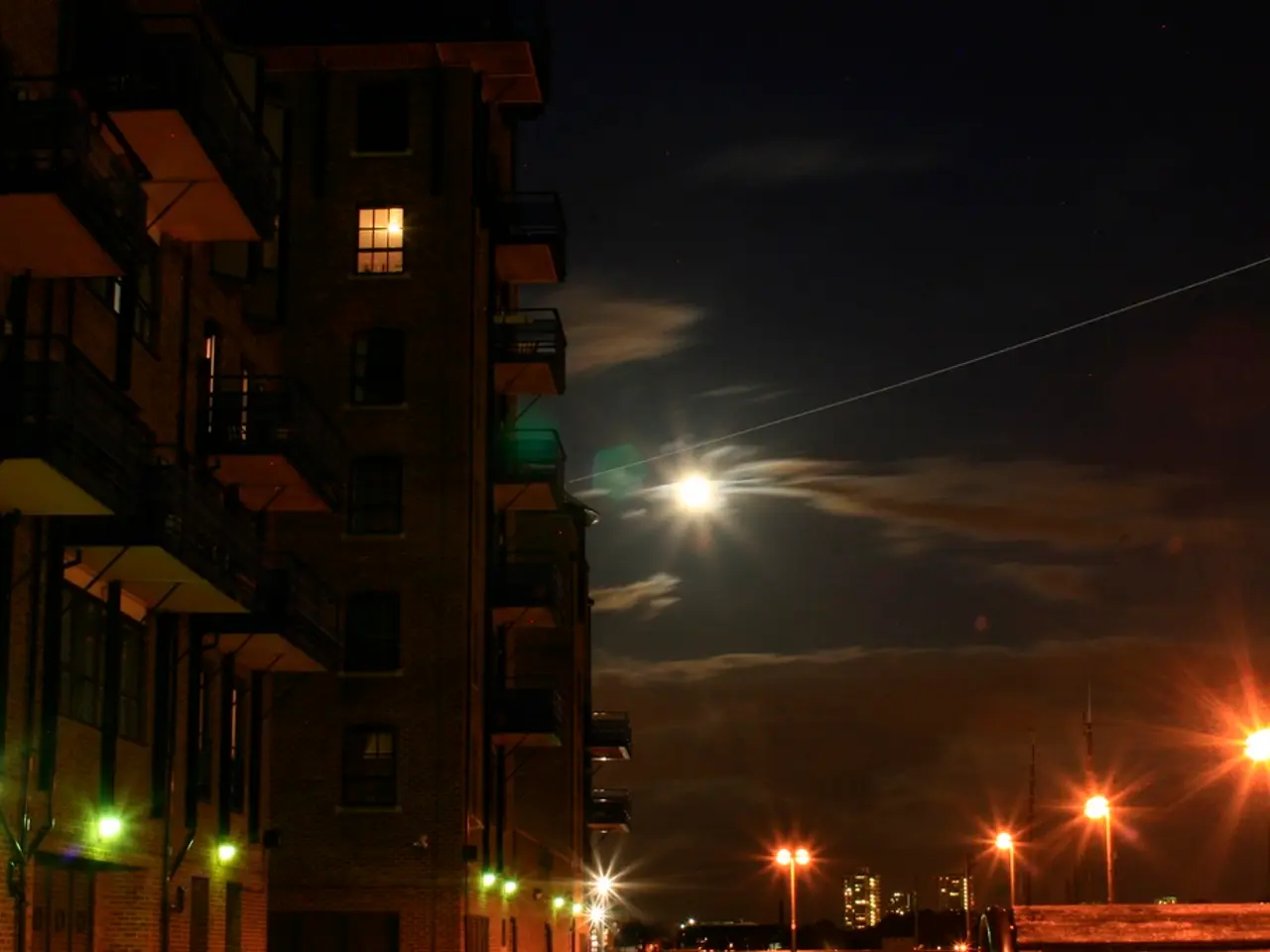Unbearable Nights Haunt City Residents Due to Heatwave - Unpleasant nights plague city dwellers due to intense heatwave conditions
A heat wave is currently affecting several cities in the southwest of Germany, including Mannheim, Freiburg, Karlsruhe, and Stuttgart. The elderly and those in need of care, as well as city dwellers, are particularly at risk due to the intense heat and the urban heat island (UHI) effect.
The UHI effect is caused by the built environments in these cities, which absorb and retain more heat than natural landscapes. The dense structures, asphalt, concrete, and limited vegetation cause the cities to heat up more intensely during the day. Moreover, they cool down less at night because the materials slowly release the absorbed heat, and urban geometry (tall buildings, narrow streets) inhibits heat dissipation and airflow, trapping warm air close to the surface.
Key factors contributing to the UHI effect include anthropogenic heat sources (traffic, air conditioning, industry), reduced evapotranspiration due to fewer plants and green spaces, the thermal properties of urban materials (high heat capacity and low albedo), and urban geometry ("canyon effect") that reduces wind speed and air mixing, limiting heat escape at night.
Temperatures in Stuttgart are expected to reach 34 degrees on Tuesday, with up to 36 degrees along the Rhine. The city dwellers in these areas must prepare for the effects of the heat, as little cooling is expected at night, with a sultry tropical night expected on Thursday and Friday nights, with minimum temperatures of 21 degrees. The thermometer could climb even higher on Wednesday and Thursday, with possible temperatures of up to 38 degrees.
A weak cold front could reach the southwest on Friday, bringing scattered showers and thunderstorms. However, despite the cold front, it will still be warm afterwards. The DWD's heat warning, issued on Monday, remains in effect until Tuesday evening for areas including the Rhine Valley from Karlsruhe to Mannheim, the Rhine-Neckar region, and the Stuttgart area. The German Weather Service (DWD) has issued a warning for strong heat stress up to an elevation of 800 meters.
The heat wave is also affecting Freiburg and other cities in the region, with the affected regions expanding southward from the Breisgau over Lake Constance to the Allgäu. Towards the weekend, the DWD expects not quite as hot air and summer temperatures around 30 degrees.
Sources:
[1] Urban Climate and Health Council. (2021). The Urban Heat Island Effect and Health. Retrieved from www.uchcouncil.org/resources/urban-heat-island-effect-and-health
[2] German Weather Service (DWD). (2021). Heat warning for southwestern cities in Germany. Retrieved from www.dwd.de/warnungen/heatwave
- The community policy should emphasize the importance of energy-efficient urban planning to mitigate the urban heat island effect, a phenomenon exacerbated by dense structures, asphalt, concrete, and insufficient vegetation in city landscapes.
- To combat the adverse effects of climate-change, environmental-science must inform policy-and-legislation, encouraging the use of renewable energy in urban areas and promoting vegetation and green spaces to enhance cooling and evapotranspiration.
- The influence of politics on heat-wave preparation and response is evident as the German Weather Service issues heat warnings and general news outlets deliver weather forecasts, keeping citizens informed about possible risks.
- The current heat wave in southwestern Germany has emphasized the need for adapting urban landscapes and energy policies to address the UHI effect, which, coupled with anthropogenic heat sources, poses a significant threat to city dwellers, especially during hot summer nights.






